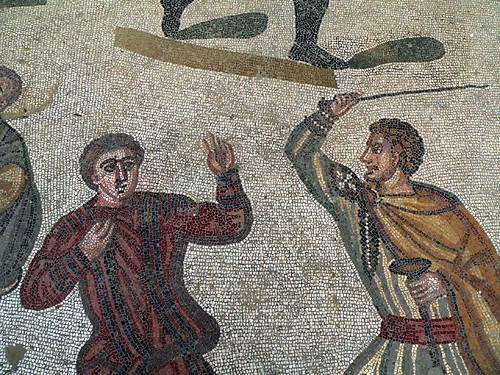Most people take it for granted that each of us is free to choose in life. But some philosophers, such as Jean-Paul Sartre, claim that most people do not really want to be free. Choices have real consequences, and freedom brings with it responsibility. People do not want to be held responsible for the consequences of their actions. What if I make the wrong decision? What if the consequences are bad? I don’t want to be held to blame! I don’t want to feel guilty. And so people seek ways to shift the responsibility on to someone or something else, whether they know they are doing this or not.
One famous way of doing this is “the devil made me do it”. But a more subtle way of shifting responsibility is to lay it upon God, or upon His representatives on earth. Sartre points out that when a person adopts a faith, they surrender some of their freedom. They surrender the freedom to decide for themselves what is right and wrong, for by subscribing to their faith’s moral code, that decision is taken out of their hands. Of course, each person is still free to choose whether to obey their faith’s moral code or not – they are still quite free and quite responsible in that sense, but they are no longer responsible for the content of the moral code itself.
Now I do not see this as a bad thing in itself. We humans are, after all, quite fallible, and we have a disturbing tendency to try to cheat to make life comfortable for ourselves. If there is a genuinely objective right and wrong in the world (as most people would agree there is), then we are much more likely to find it when God tells us what it is than when are left to work it out for ourselves. Continue reading “Afraid to be Free”







